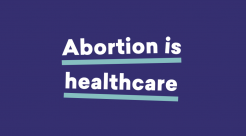
SHINE SA supports the decriminalisation of sex work.[1]
In 2018 a global systematic review[i] led by the London School of Hygiene & Tropical Medicine found that any criminalisation/repressive policing of sex workers, their clients and/or sex work:
- increased risk of condomless sex,
- increased risk of infection of HIV and sexually transmitted infections (STIs),
- disrupted support networks, safety and risk reduction strategies.
This systematic review called for urgent sex worker law reform as a public health priority.
The current Australian Government’s Eighth National HIV Strategy 2018-2022 and Fourth National Sexually Transmissible Infections Strategy 2018-2022 echo the fact that there is now definitive evidence that decriminalisation of sex work is linked to the reduction of HIV and STI risk.
The Eighth National HIV Strategy 2018-2022 states:
“Evidence that has emerged since the previous strategy definitively shows that decriminalisation of sex work is linked to the reduction of HIV risk and rates”.
The Fourth National Sexually Transmissible Infections Strategy 2018-2022 reinforces this, stating:
‘Sex workers experience specific barriers to accessing health services, including stigma and discrimination and regulatory and legal issues-criminalisation, licensing, registration and mandatory testing in some jurisdictions.
These can impede access to evidence-based prevention, testing, treatment and support services and can result in increased risk of STI, loss of livelihood, and risk to personal and physical safety.’
Governments invest in infectious diseases research and the subsequent implementation of strategies to reduce their spread, due to the harm they cause to the individuals and the risk to all communities.
STIs do not discriminate on whether sexual activity is paid or unpaid. STIs can cause serious, life-threatening complications including cancers, infertility, ectopic pregnancy, spontaneous abortions, stillbirth, low birth weight, neurologic damage, and death.
Ultimately the decriminalisation of sex work is important to public health not only to reduce stigma and discrimination, but to improve the health and safety of workers, clients and the broader community.
[1] Sex work is always a consensual exchange between adults. When not consensual, we call it assault, rape or sexual slavery, and it should always be a crime.
[i] Platt L et al (2018) Associations between sex work laws and sex workers’ health: A systematic review and meta-analysis of quantitative and qualitative studies (plos.org) PLOS Medicine.








